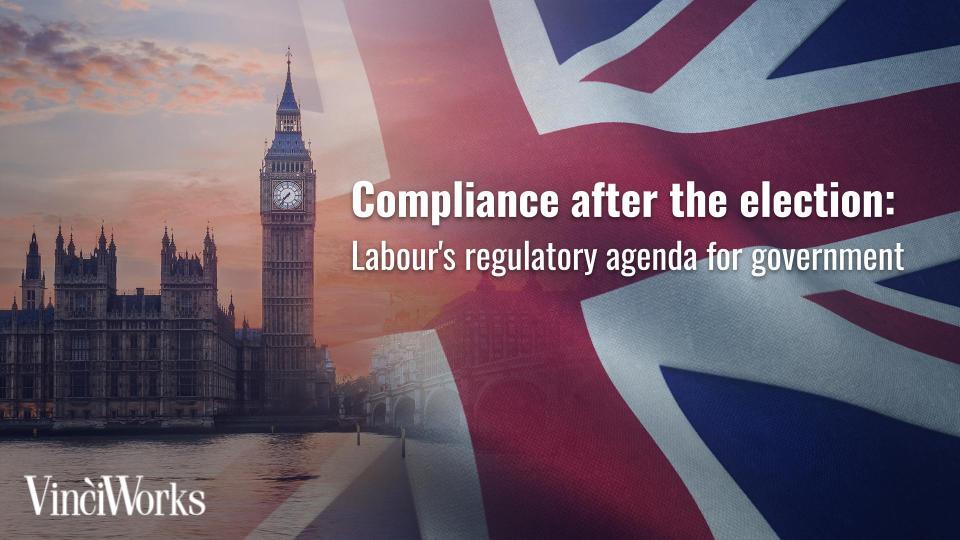Labour’s plan for government will affect dozens of areas of compliance, from whistleblowing to employment rights, money laundering and fraud to menopause and the Equality Act.
Labour’s manifesto commitments and previously announced policies will define the regulatory agenda for this parliament. A mixture of primary legislation, secondary legislation and policy shifts at the regulatory level will see UK organisations affected across every department, from HR to marketing, senior management and back office staff.
It will be up to the government to decide how and when each of these plans are brought forward. Some may be watered down, while others expanded. However these outlined changes represent the direction of travel Prime Minister Keir Starmer has committed to.
What should your organisation do now?
Regulatory changes are often easier to manage if they are planned for in advance, so it can be worth getting a plan in place in the medium term for longer term compliance developments. Consider each of the possible changes and the scale with which it may or may not impact your business. For example if you hire a lot of freelancers, proposed changes to zero-hours contracts may be a significant issue to prepare for.
Consider the impact of the regulatory change and develop a forward-thinking plan, alongside contingencies and risk assessments, for how you can move forward. While legislation often takes time to go through parliament, sometimes regulatory changes can be rapid or announced last minute.















